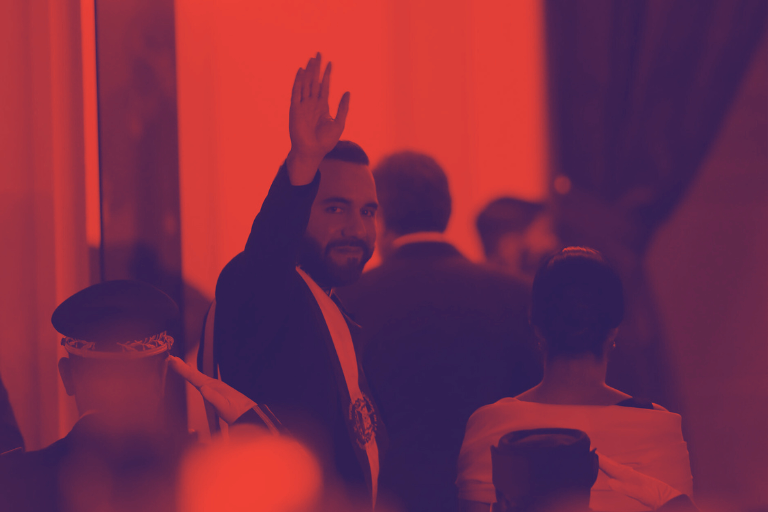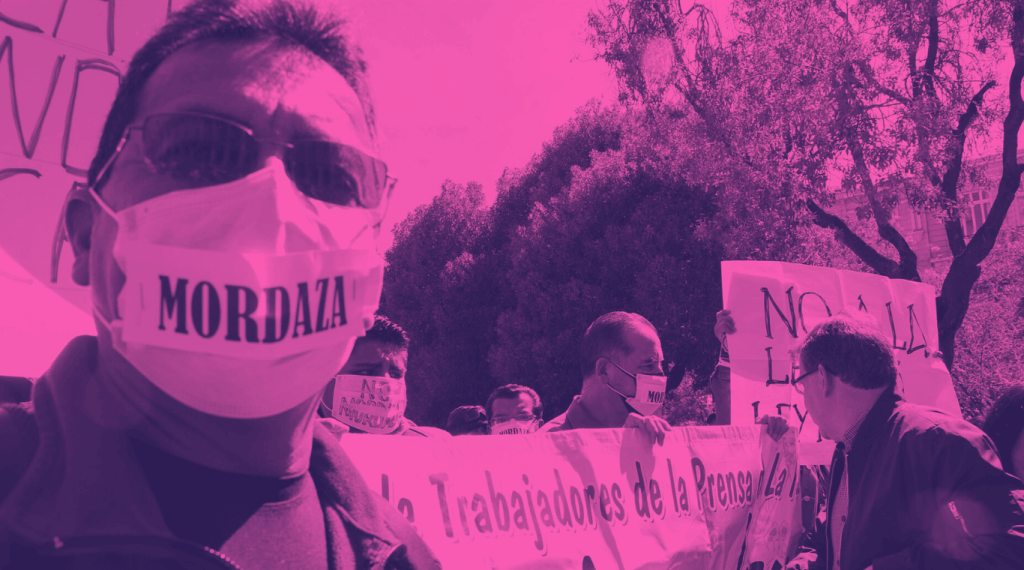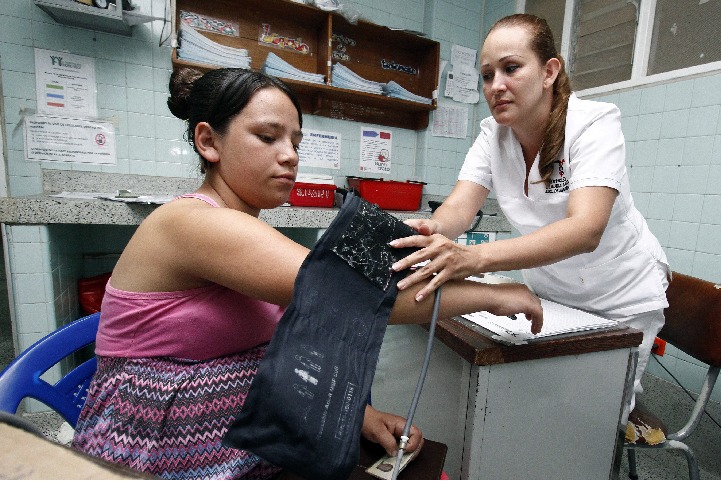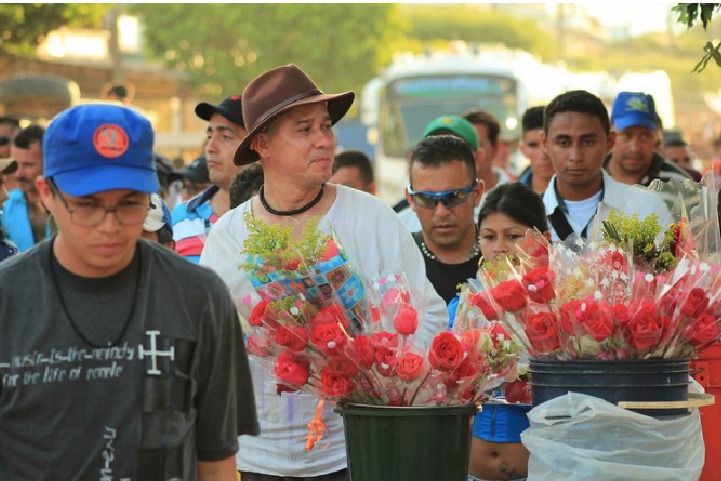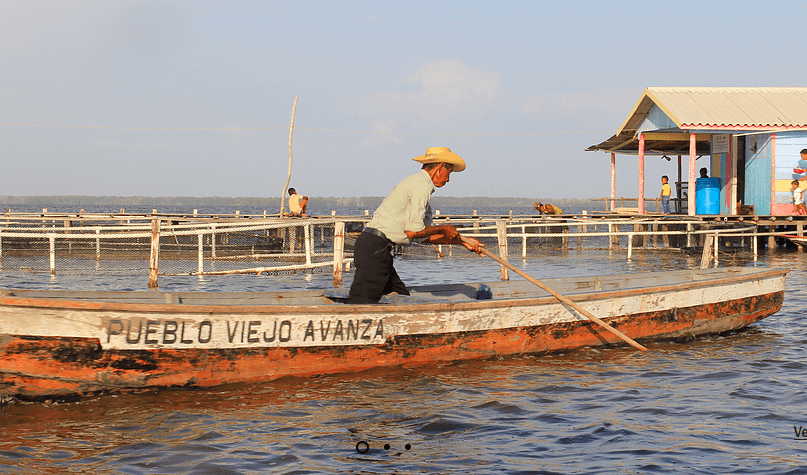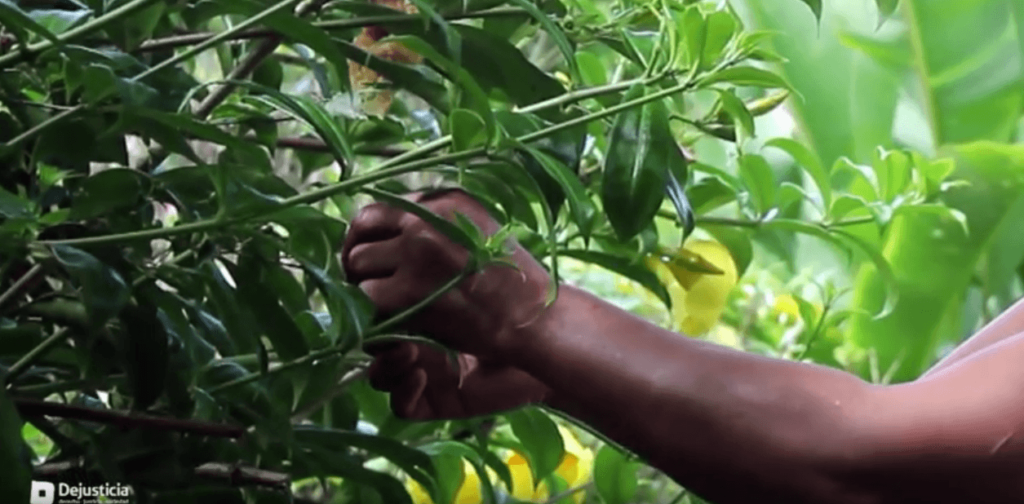News
LATEST IN COLOMBIA

News
In Defense of Affirmative Actions
By César Rodríguez Garavito |
Daniel Mera, Directive of Fundación Color, published an interesting article in El Tiempo. In it, he lashed out at all affirmative actions proposed by the Government that seek to promote Afro-Colombian inclusion in jobs, schools, and other spaces in which they have been usually discriminated.
What about the internally displaced people?
By |
It could be argued that concerning issues such as the penalty to those who displaced people from their land and land adjudication, the results are totally negative.
Hard Against Drugs
By Mauricio García Villegas |
After forty years of a fruitless drug war that started out with Richard Nixon’s declaration against hippies and young libertarians of the 1960’s, today, legalizing supporters are being taken into account.
Dejusticia’s Director was interviewed by the magazine Poder 360 about re-election and checks and balances
By Dejusticia |
More checks and balances.
One of the principal arguments exposed by those who oppose Uribe’s second re-election is the disturbance of the balance of power. Notwithstanding, some experts say damage has already been done and will continue being done.
The modest paragraph
By Miguel Emilio La Rota |
Many have ignored the fact that a paragraph contained in the Constitution could prevent Uribe from being re-elected for a second time.
Operation insistence
By Rodrigo Uprimny Yepes |
Almost every Colombian knows about Operation Jaque. But only a small number knows about the discrete operation that has been going on for 25 years in Colombia: “Operation insistence”.
I don’t care if they call me a dictator.
By Dejusticia |
During his six years in office, Bukele has consolidated his power, paving the way to become the dictator he appears to be announcing himself as.
NGOs at risk of global extinction
By Dejusticia |
How can non-governmental organizations transform themselves? What were they like when they did not depend on international funding?
Colombia: going back to the original balance of justice
By Paola Molano Ayala |
There is a crucial aspect of Colombia’s transitional justice model that is worrying: the current inability of the Special Jurisdiction for Peace (JEP) to offer legal security to those who participated in the conflict, including in human rights violations, and have not been identified as among the most responsible. And making sure they also contribute to the satisfaction of the rights of the victims. The JEP must avoid keep moving towards maximalist approaches and go back to the balance in the Peace Agreement.
Elementa DD.HH. y Dejusticia presentamos un amicus en el proceso que adelanta el Asocazul y Cajar por afectaciones derivadas de aspersiones con glifosato
By Dejusticia |
El glifosato causó daños irreversibles a los campesinos del sur de Bolívar y el Estado debe repararlos. Así lo argumentamos en una intervención ante el Consejo de Estado.
Colombia must obtain resources to guarantee the right to health of Venezuelan migrants: Constitutional Court
By Santiago Ardila Sierra |
The high court protected the right to health of two undocumented Venezuelans and requested the government to advance as “expeditiously and effectively as possible” towards the full realization of migrants’ right to health, regardless of their immigration status. Dejusticia intervened in the case.
Dejusticia intervenes in defense of Venezuelan migrants’ right to health
By Dejusticia |
The Constitutional Court invited Dejusticia to present their legal opinion on two cases concerning the right to health of people coming from Venezuela.
The long wait of the JEP ahead of the decisions of the Constitutional Court and Congress
By Dejusticia |
In the last six months civil society organizations, such as Dejusticia, have called on both institutions to give free rein to the norms that consolidate the Special Jurisdiction for Peace.
Case of indigenous people of Bojayá who could not vote in the plebiscite is about to reach the Court
By Mauricio Albarracín |
Through a tutela, a group of Emberá claimed their rights to political participation and equality, because their economic situation and how far they live made it impossible for them to move to endorse the Peace Agreement. Dejusticia, human rights organizations, and indigenous leaders asked the High Court to review the case.
The Constitutional Court has the last word to save the Ciénaga Grande of Santa Marta
By César Rodríguez Garavito |
The environmental crisis of this ecosystem led fishermen to pursue a legal battle that reached the High Court. In this intervention, we support their demand that environmental authorities take urgent measures to stop the disaster and thus, protect their rights to healthy environment, dignified life and work.
Gender focus in rural reform is important but insufficient
By Ana Jimena Bautista |
The Gender-in-Peace Working Group -GPAZ, a group of which Dejusticia is a member, took part in the Public Hearing convened by the Constitutional Court, within the framework of the informal constitutional review of Decree 902 of 2017 “to facilitate the implementation of the Comprehensive Rural Reform contemplated in the Final Land Agreement, specifically the procedure for access and formalization and the Land Fund.”
Stories
From The Territory
We travel with 20 indigenous activists of the world to the heart of the Sierra Nevada de Santa Marta. Listen to this story about the Kankuama Resistance.
Dejusticia's
Documentaries
Discover some of the documentary pieces that we have made. Indigenous resistance, migration of Venezuelans to Colombia and stories of women coca growers, are some of our topics of interest.
